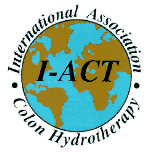History about Colon Hydrotherapy
Colon lavage was first recorded around 1500 BC in the ancient Egyptian document. Ebers, Papyrus that dealt with the practice of medicine. These enemas were described as the infusion of aqueous substances into the large intestine through the anus. Hippocrates (4th & 5th century B.C.) recorded using enemas for fever therapy. Galen (2nd century AD) also recognized and was a proponent of the use of enemas. Pare in 1600 AD, offered the first distinction between colon irrigation and the popular enema therapy of that age.
Colon irrigation, since the turn of the century, has experienced periods of reaction. The factors that contributed mainly to the ambivalence primarily were due to the practice of colon irrigation by the untrained and unskilled, which was very detrimental to its professional growth. When colon irrigation gained the attention of such physicians as James A Wiltsie, MS and JosephE.G Waddinton, MD, great value was placed on the therapeutic benefits of this modality. The philosophy attributed to colon irrigation by certain physicians of this era was depicted by DR Waddington. Abnormal functioning of the intestinal canal is the precursor of much ill health, especially of chronic disease condition. Restoration of the physiolic intestinal elimination is often the first, but too often ignored, important preliminary to eventual restoration of the health in general. DR Wiltsie contends that our knowledge of the normal and abnormal physiology of the colon, and of its pathology and management, has not kept pace with that of many organs and systems of the body. As long as we continue to assume that the colon will take care of itself, just that long will we remain in complete ignorance of perhaps the most important source of ill health in the whole body.
Today, with modern technological advancements in Colon hydrotherapy device, particularly with regard to safety, along with educated and skilled hygienist, Colon hydrotherapy has become a valuable adjunction modality to the physician in treating disease. Combined with sound nutrition, exercise, and a positive mental and spiritual outlook, Colon hydrotherapy can play an important role in achieving and maintaining vibrant health.
Colon irrigation, since the turn of the century, has experienced periods of reaction. The factors that contributed mainly to the ambivalence primarily were due to the practice of colon irrigation by the untrained and unskilled, which was very detrimental to its professional growth. When colon irrigation gained the attention of such physicians as James A Wiltsie, MS and JosephE.G Waddinton, MD, great value was placed on the therapeutic benefits of this modality. The philosophy attributed to colon irrigation by certain physicians of this era was depicted by DR Waddington. Abnormal functioning of the intestinal canal is the precursor of much ill health, especially of chronic disease condition. Restoration of the physiolic intestinal elimination is often the first, but too often ignored, important preliminary to eventual restoration of the health in general. DR Wiltsie contends that our knowledge of the normal and abnormal physiology of the colon, and of its pathology and management, has not kept pace with that of many organs and systems of the body. As long as we continue to assume that the colon will take care of itself, just how long will we remain in complete ignorance of perhaps the most important source of ill health in the whole body.
Diseases and functional disturbances of the digestive organs are the most frequently complained about problems today. Consider these current medical facts:
-
Colon cancer is the second leading cancer killer around the world.
-
Over 400 million dollars are spent annually on laxatives in the US.
-
1/3 population in this country suffer from bowel problem.
Research has shown that regular use of refined carbohydrates and lack of fibre in the diet increases the transient time of bowel wastes and stimulates purifaction in the colon. Both of these factors have been linked to constipation and certain bowel disease such as: diverticulitis, colitis, and colon cancer. The American Cancer Society has provided evidence in recent years which suggests that bowel cancer is caused by environmental agents such as: pesticides and herbicides sprayed on crops, hormones and antibiotics fed to animals and carcinogenic agents in the air we breathe. Periodic cleansing could minimize exposure of these potential carcinogens to the colon wall.



